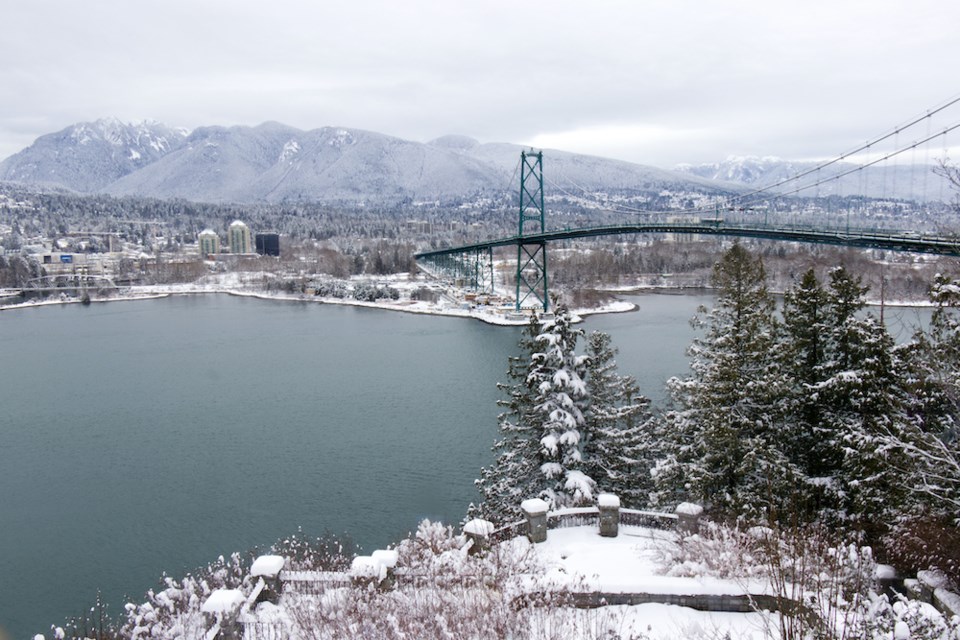Record-breaking cold temps aren't in the cards for the next period, but that doesn't mean Vancouver won't be on ice for the a little while.
An Arctic air mass currently sitting over the Interior of B.C. is expected to move towards the coast over the next few days, clashing with the wet Pacific air that's in Vancouver now.
While that's likely to bring Metro Vancouver a white Christmas, it'll also bring significantly cooler temperatures than usual and make driving more difficult.
"Once we start talking about snow and freezing rain it can be a bit of a problem for travellers," says Environment Canada meteorologist Doug Lundquist.
Already that Arctic air is in Hope, and Lundquist says it's arriving in Vancouver today (Dec. 20). Earlier today, Environment Canada issued a special weather statement warning about the potential of snow and freezing rain. Lundquist says those bad driving conditions will continue while the Arcitic air persists.
The coldest day is expected to be Boxing Day he says, and that may see temperatures dip to -10 C; that's short of the records for this time of year in Vancouver but much colder than usual. Lundquist notes that Vancouver is often above average this time of year, as far as temperature goes, and then has much colder years which balance out the average. Rarely is the temperature in the average range.
"Right now I'm good until about day six (Dec. 26); I'm pretty confident about that," he says. "Beyond that it's going to be colder than average or arctic air; if we do get that arctic blast it could be double digits."
Beyond boxing day the different models Environment Canada use are giving different predictions. The Canadian model says there'll be an arctic blast before New Year's Eve, while the American model expects a warming trend.
In either case, the snow and precipitation expected over the next 10 days are cause for concern for anyone travelling, especially into the interior. With the two main routes (highways 1 and 5, a.k.a. the Trans-Canada and Coquihalla) still out of commission to non-essential traffic, that is pushing people to use the much windier highways 3 and 99.
"The issue is the snow is coming at exactly the wrong time when we don't have a full contingent of highways right now," Lundquist explains.
He suggests anyone travelling prepare for the conditions and check DriveBC's website before heading out, and dress warmly in case they have to get out of the car for any reason.



